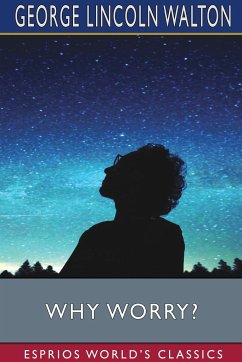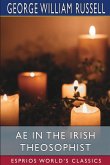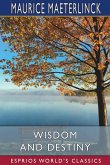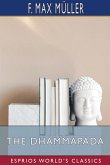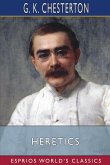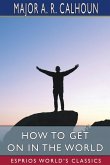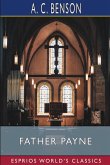"When Thales was asked what was difficult he said, "To know oneself"; and what was easy, "To advise another." Marcus Aurelius counselled, "Let another pray, 'Save Thou my child,' but do thou pray, 'Let me not fear to lose him.'" Few of us are likely to attain this level; few, perhaps, aspire to do so. Nevertheless, the training which falls short of producing complete self-control may yet accomplish something in the way of fitting us, by taking the edge off our worry, to react more comfortably to our surroundings, thus not only rendering us more desirable companions, but contributing directly to our own health and happiness."

